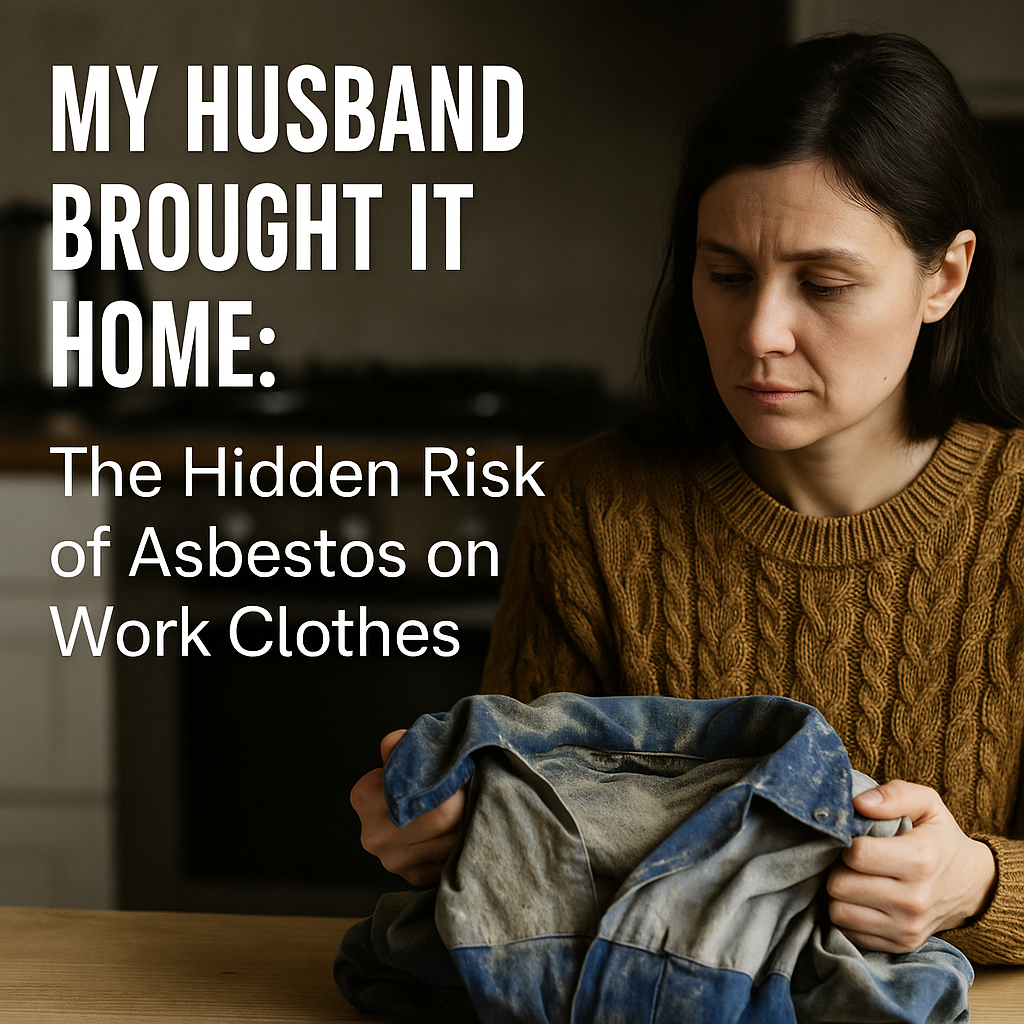Many families in Pennsylvania and West Virginia have been harmed by take-home asbestos exposure — without ever setting foot inside a plant or mill.
This happens when a worker brings asbestos dust home on their clothing, boots, tools, or car seats. Wives, children, and other family members breathe in the fibers during laundry, cleanup, or even simple hugs. Years later, that exposure can lead to mesothelioma, a deadly cancer with no cure.
How Take-Home Asbestos Exposure Happens
In the 1960s, ’70s, and ’80s, steelworkers, pipefitters, millwrights, electricians, and chemical plant employees worked around asbestos daily. They were never warned that asbestos was dangerous — or that it could hurt the people they loved.
Their spouses washed dusty work clothes without gloves or masks. Kids sat in the front seat of a car coated with invisible fibers. Over time, that dust found its way into the lungs of entire families.
Families at Risk
You may be at risk for take-home asbestos exposure if someone in your household worked at:
- PPG Natrium Plant
- Ormet Aluminum in Hannibal, OH
- DuPont Washington Works
- US Steel Clairton, Homestead, or Irvin
- J&L Aliquippa
- Mitchell, Pleasants, or Willow Island power stations
Even if your loved one has passed away, you may still be eligible to file a claim.
📥
Download the Take-Home Asbestos Exposure Guide
This free guide explains how exposure happens, how it’s proven, and what legal rights families may have.
⚖️ Help Is Available
You don’t have to go through this alone. We’ve helped families across Pennsylvania and West Virginia understand their options.
📞 Free Consultation
If you or someone you love was diagnosed with mesothelioma after secondhand exposure, call (412) 781-0525 or contact us. You may still have time to act.


Comments are closed.